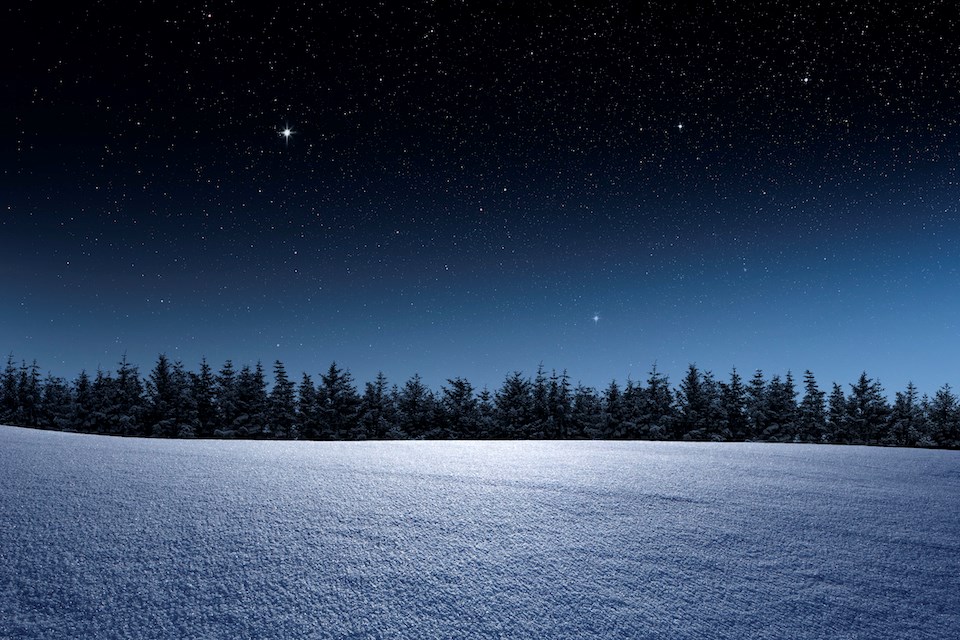Do you feel like the stars shine brighter on a cold winter's night?
Metro Vancouver's deep freeze has provided the ideal conditions for ample snowfall across the region over the past week, commencing with the season's first snowfall on Sunday, Feb. 2.
More opportunities for snow exist in the coming days but the forecast also includes several crisp, crystal-clear nights, perfect for stargazing. Locals plotting their next sky-watching rendezvous should check the Metro Vancouver weather forecast for nights with extreme lows and clear skies.
Environment Canada Meteorologist Alyssa Charbonneau says the Arctic air zaps moisture out of the atmosphere, provided a storm doesn't bring any significant moisture into the region.
"On cold, dry nights it can seem like the atmosphere is clearer," she tells V.I.A. "The cold air tends to hold less moisture and there is less light distortion."
Temperature inversions also make the stars appear to twinkle more in the winter than in summer. This occurs when warm air overlies cooler air at ground level, with the warmer air acting as a lid. The "extreme temperature gradients" give the illusion that stars sparkle brightly, according to The Weather Network.
Bright stars are visible in the Northern Hemisphere during the winter
An influx of Arctic air improves visibility for stargazing in the Lower Mainland. However, winter is also the best time to view some of the brightest stars in the Northern Hemisphere.
Skywatchers shouldn't confuse planets for stars (they can look similar). Planets can appear very bright but don't twinkle like stars. Stars may also appear to change colour, but planets do not.
In December, January, and February, North America faces away from the Milky Way's centre and toward the Orion arm, the spiral arm where the galaxy is located. Some stars in this arm are considered "gigantic" and are "relatively close to us," allowing them to appear electrically bright and massive, according to EarthSky.
Stargazers must reckon with galactic dust that obscures the Milky Way during summer months. They also observe the "combined light of billions upon billions of stars," which gives the night sky a "hazy" effect.
During the winter, Metro Vancouver's skies don't have significant space dust or combined starlight. Instead, fewer but very bright stars shine in the crisp night sky.
Still, locals looking for the perfect star-hunting spot may want to travel outside city limits to places with less light pollution. The darker the sky gets, the brighter the stars appear.
Stay up-to-date with hyperlocal forecasts across 50 neighbourhoods in the Lower Mainland with V.I.A.'s Weatherhood.



